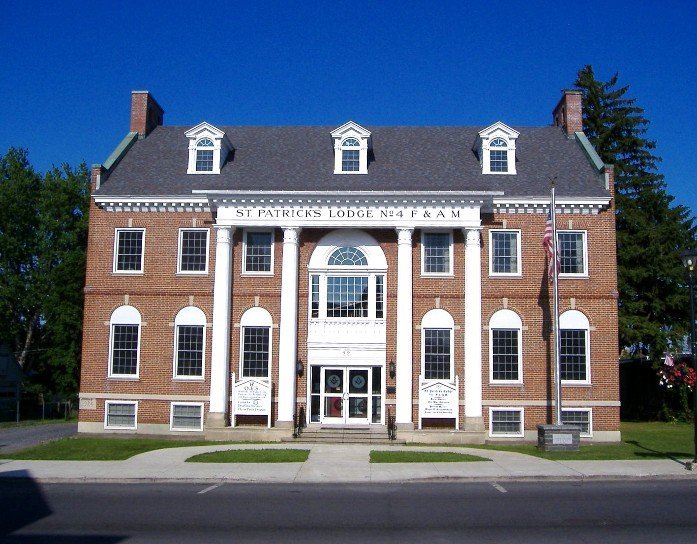 Johnson Hall, the 18th century baronial estate of Sir William Johnson and his family, has opened its doors for the 2012 season. Through Sunday, October 14th, the State Historic Site will offer guided tours on Wednesdays through Saturdays from 10am to 5pm, and on Sundays from 1pm to 5pm.
Johnson Hall, the 18th century baronial estate of Sir William Johnson and his family, has opened its doors for the 2012 season. Through Sunday, October 14th, the State Historic Site will offer guided tours on Wednesdays through Saturdays from 10am to 5pm, and on Sundays from 1pm to 5pm.
Tours will generally begin on the half-hour, with the final tour of the day beginning at 4pm. Pre-registered group tours and Site special events may alter this tour schedule. The historic house will also be open on Memorial Day, Independence Day and Labor Day.
Johnson Hall was the 1763 Georgian estate of Irish-born Sir William Johnson and Mohawk Indian Molly Brant and their family. Sir William (1715 – 1774) was the single largest landowner and most influential individual in the colonial Mohawk Valley. His success in dealing with the Six Nations had a lasting impact on their relationship with the English, and largely influenced England’s victory in the Anglo-French struggle for control of colonial North America. The main house and flanking stonehouses, originally surrounded by a 700 acre farm, now interpret the Johnson family through guided tours of the period room settings, educational programs and special events.
Admission fees are $4.00 for adults and $3.00 for senior citizens and students. Children 12 years of age and younger are admitted free when accompanied by an adult. Groups of 10 people or more, as well as school groups, must register in advance. Group fees are $3.00 per person, while the school fee is $1.00 per person (regular school year only). Special fees for Site special events may apply.
The 2012 Site calendar of events will be announced shortly, highlighted by the annual Market Fair on July 14th and 15th , which will feature an 18th century cricket demonstration, live performances, vendors, encampment, an open house and much more.
The Friends of Johnson Hall, a not-for-profit support group, will host the Johnson Jog 5K Run/Walk on Saturday, May 19th. More information on this major fundraiser, which will support the education and preservation programs at Johnson Hall, visit www.friendsofjohnsonhall.org or call (518) 762-4459.
For more information on Johnson Hall State Historic Site, visit www.nysparks.com or Facebook, or call (518) 762 – 8712.
 I noticed that there was a report in the Leader Herald on the Johnstown Masons of St. Patrick’s lodge, so I thought this bit of history might be timely:
I noticed that there was a report in the Leader Herald on the Johnstown Masons of St. Patrick’s lodge, so I thought this bit of history might be timely:



